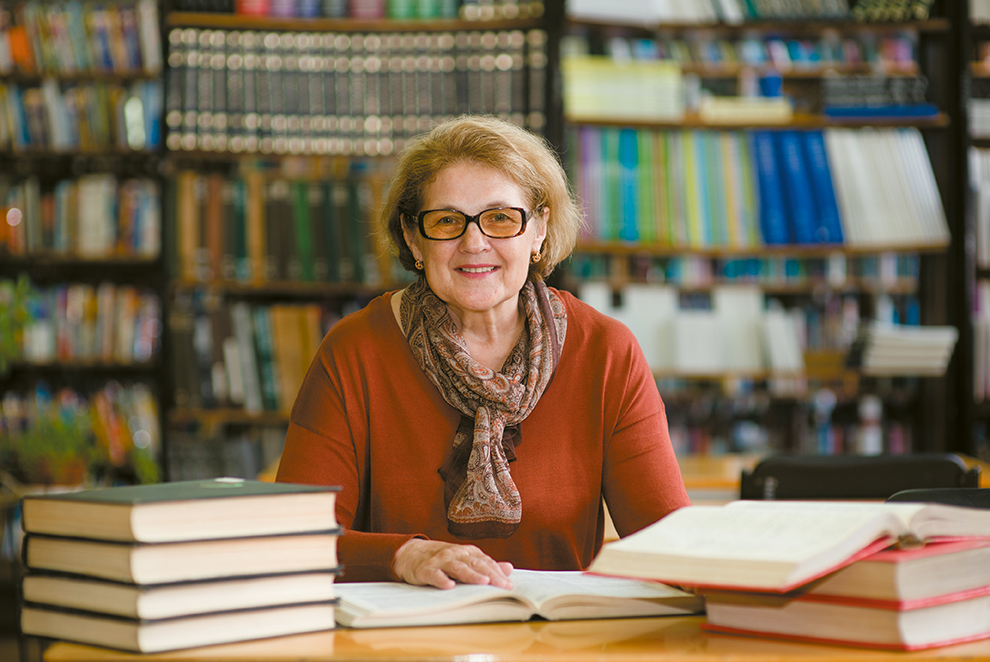Giving back: Are we volunteering more?
Do older Australians love to volunteer as much as we all think? The latest National Seniors research reveals how we really feel about volunteering.
By Lindy Orthia and Diane Hosking, National Seniors researchers

Volunteering your time and effort for the community is an activity often associated with older Australians. Notably, this year’s Senior Australian of the Year, Val Dempsey, was awarded that title in recognition of her lifelong commitment to volunteering with St John Ambulance (read more in this article).
She isn’t alone—a lot of us do it.
According to the Australian Institute of Health and Welfare (AIHW), about a quarter of people aged over 70 undertook voluntary work in 2019, along with nearly three out of ten people aged 55 to 69.
This year in the tenth National Seniors Social Survey (NSSS-10), we asked older Australians about their volunteer experiences as part of a suite of questions about post-retirement work. Over 3,600 seniors answered this question, of whom a third (33%) said they volunteered between one and ten hours per week. A further 10% volunteered more than 10 hours per week.
The number was even higher for people aged over 75, with 11% volunteering more than 10 hours weekly.
People who volunteer were more likely than non-volunteers to feel satisfied with how they spend their time, to feel positive about ageing, and to believe their community offers a good quality of life.
So, what do these volunteers do and why do they do it? Let’s take a closer look at what the survey revealed about their activities and motivations—and the reasons why some don’t volunteer.
Many respondents mentioned volunteering their labour in unpaid caring roles: looking after a relative, friend, or flatmate. People in that situation often found it difficult to estimate how many hours they volunteer because it is a 24/7 job and is intimately interwoven into their daily lives.
The survey also showed there is a difference of opinion about whether caring work counts as volunteering, with some participants saying their caring responsibilities are a reason they don’t volunteer. Some of these people listed their volunteer hours as ‘none’, showing just how much unpaid work happens in this country that doesn’t get counted on any spreadsheet.
This ambiguity about what kinds of work count as volunteering can help explain why our numbers seem higher than the AIHW’s numbers, which were solely concerned with volunteering through an organisation or group. Further explaining the discrepancy, a few of our survey participants said they like to volunteer for their community by helping individuals in need, but they don’t like to work within organisations or groups when doing their volunteer work.
Those who did specify an organisation or group mentioned a broad array of volunteering activities. Some volunteer with bodies that combat poverty, help animals, or protect the environment.
Other volunteers are devoted to helping specific groups of disadvantaged people or contributing to the cultural activities of communities they are part of. Many also volunteer with clubs and societies that offer health, sport, and arts-related activities, and in public institutions devoted to community care, education, and culture.
In these positions, older Australians engage in all kinds of volunteer labour across a range of different industries such as customer service and administration, healthcare, trades, hospitality, education, technology, arts, and more.
Around 100 survey participants commented on the reasons they volunteer.
Contributing to society was the top reason. Around 50 people said they find it rewarding to volunteer because it helps people and communities. One person brought it down to basics: “I make a difference in this world with what I do."
Two other major reasons participants gave for volunteering were social opportunities and staying active. These included the chance to “form relationships with people or cultures that you would not otherwise encounter” and that it “helps keep people fit and engaged in society.”
The final major reason people gave was simple enjoyment of the work. “To maintain my zest for living” was how one person put it. Others said, “It is a wonderful activity and I thoroughly enjoy every minute of it” and “All of these things are labours of love and bring great joy and satisfaction.”
Many commenters wrote passionately about the benefits of volunteering. As one wrote, “Education about the benefits of volunteering should be provided to the general community on a regular basis so as to enlist younger generations. I believe it would diminish the amount of mental health demands put on our system.”
Another person noted the essential role volunteers play in Australian society, commenting, “The only way most things get done in the bush is for us to help do the extra work needed by ourselves, thus we have to rely on the dedicated and loyal teams of volunteers who are all invested in a vital and thriving future of the bush for the next generation and beyond.”

Latest research news
Learn more about this topic and read our upcoming report on older Australians’ post-retirement work in our weekly Connect email newsletter. Join our mailing list here.
While there are lots of reasons people do volunteer, around 400 people offered diverse reasons why they don’t. The most common reason people gave for not volunteering—aside from caring duties—was COVID-19, which was mentioned by more than 100 people.
“COVID-19 has put a dampener on volunteering,” as one person put it, by increasing risks and forcing closures.
Around 80 people said their health problems or disabilities prevented them from volunteering even if they wanted to. “I did a lot of volunteer work previously until my body broke” and “There comes a time when the body refuses to comply with demands of the mind” were experiences reflected in many comments from people who were physically unable to work anymore, volunteer or otherwise. Fatigue, chronic pain, mobility issues, sensory limitations, and mental health were all part of this picture.
Some survey respondents were still in paid work or had other commitments, prohibiting volunteering because of a lack of time or an inability to commit to regular hours. As one wrote, “I would consider volunteer work so long as it did not tie me down too much.”
Less common reasons included not knowing what opportunities were available, unpleasant politics or ageist attitudes within host organisations, lack of transport options for attending volunteer shifts, and restrictive bureaucratic rules.
Some older Australians also struggle with the ethics of doing volunteer work that could be done by a paid employee. As one commented, “I refuse to volunteer now for work that should be paid.”
In addition, some people simply feel strongly that retirement means retirement. As one person stated, “We have given countless hours of volunteer work. Now we rest.”

